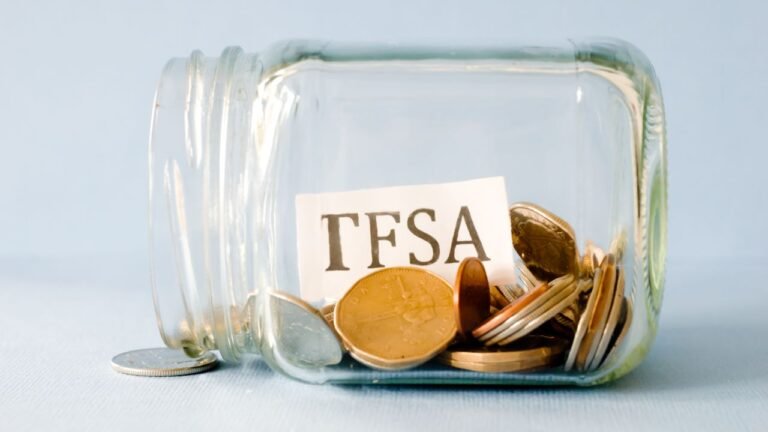Tax Deductions And Credits To Maximize Your Tax Refund
Understanding tax deductions and credits is crucial for Canadian taxpayers aiming to maximize their refunds in 2024.
Tax Deductions and Credits for Parents with Kids
Parents in Canada can access a variety of tax deductions and credits designed to alleviate the financial pressures of raising children.
These benefits not only provide direct financial relief but also aim to support the well-being and development of children.
Canada Child Benefit (CCB)
The Canada Child Benefit (CCB) is a tax-free monthly payment made to eligible families to help with the cost of raising children under 18 years of age.
The amount received is based on the family’s income, the number of children, and their ages.
As of 2024, eligible parents can receive up to $619.75 per month for each child under 6 years old and $522.91 per month for children aged 6 to 17.
The CCB is one of the most significant financial supports for Canadian parents, designed to ensure that children have a healthy start in life.
Child Care Expense Deduction
Parents who pay for child care to work, run a business, attend school, or conduct research can claim the Child Care Expense Deduction.
This deduction covers a wide range of child care services, including daycares, nannies, and camps.
The maximum amount that can be claimed depends on the child’s age and any disability.
It’s important to keep all receipts and ensure the service provider includes their Social Insurance Number or Business Number on the receipt.
Medical Expenses Tax Credit
The Medical Expenses Tax Credit can be particularly beneficial for parents with significant medical or dental expenses for their children.
This non-refundable tax credit covers a wide range of expenses not covered by insurance, including certain therapies, treatments, and medical devices.
To maximize the benefit, families may consider pooling their medical expenses on one tax return, typically the one with the lower income.
Disability Tax Credit (DTC)
For parents of children with severe and prolonged physical or mental impairments, the Disability Tax Credit (DTC) can provide significant relief.
The DTC is a non-refundable tax credit that reduces the amount of income tax owed.
Eligibility for the DTC requires certification by a medical practitioner and approval by the CRA.
This credit can also open eligibility for other programs and benefits, such as the Registered Disability Savings Plan (RDSP).
Canada Education Savings Grant (CESG) and Canada Learning Bond (CLB)
While not direct tax deductions or credits, the CESG and CLB are government contributions to a child’s Registered Education Savings Plan (RESP) that can significantly impact a child’s future education funding.
The CESG adds 20% to the first $2,500 contributed annually to an RESP, up to a maximum of $500 per year.
The CLB provides additional support for low-income families, with up to $2,000 available for eligible children, regardless of contributions.
Tax Deductions and Credits for Seniors
Seniors in Canada have access to several tax deductions and credits tailored to ease their financial burden during retirement years.
These incentives recognize the unique financial challenges faced by older adults, including reduced income and increased medical expenses.
Age Amount Tax Credit
The Age Amount Tax Credit is designed for Canadian residents who are 65 years of age or older at the end of the tax year.
This non-refundable credit provides relief by reducing the amount of income tax owed.
The credit amount is reduced when the senior’s net income surpasses a certain threshold, ensuring it’s targeted to those who need it most.
Pension Income Tax Credit
Seniors receiving eligible pension income can benefit from the Pension Income Tax Credit.
This non-refundable credit applies to the first $2,000 of pension income, including amounts from a registered pension plan, annuity payments from an RRSP, or payments from a registered retirement income fund (RRIF).
This credit can result in significant tax savings, especially when combined with income splitting strategies.
Pension Splitting
Pension splitting Amount allows seniors to allocate up to 50% of eligible pension income to their spouse or common-law partner, potentially lowering the overall tax burden for the couple.
This income-splitting strategy can be particularly effective in reducing taxes if there’s a significant difference in income levels between partners.
Medical Expenses Tax Credit
The Medical Expenses Tax Credit is particularly beneficial for seniors, who may face higher healthcare costs.
This non-refundable credit covers a wide range of out-of-pocket medical expenses not covered by insurance, such as prescription medications, dental services, and mobility aids.
Seniors can claim expenses for themselves, their spouse or common-law partner, and other dependants, potentially leading to substantial tax savings.
Disability Tax Credit (DTC)
Seniors with severe and prolonged impairments in physical or mental functions may be eligible for the Disability Tax Credit (DTC).
This non-refundable credit is designed to provide relief for individuals facing significant disability-related expenses. Qualifying for the DTC requires certification by a medical practitioner and approval by the CRA.
Home Accessibility Tax Credit (HATC)
The Home Accessibility Tax Credit (HATC) is available for seniors who make eligible renovations to their home to improve accessibility or safety.
This non-refundable credit can apply to changes like installing walk-in bathtubs, building wheelchair ramps, or widening doorways.
The HATC encourages seniors to adapt their homes to meet their changing mobility needs, enhancing their ability to live independently.
Tax Deductions and Credits for Homeowners
For many Canadians, homeownership is not just a milestone but also an opportunity to leverage various tax deductions and credits.
These benefits can ease the financial burden associated with owning and maintaining a home.
Home Buyers’ Amount
First-time homebuyers can take advantage of the Home Buyers’ Amount, a non-refundable tax credit aimed at providing financial relief to individuals purchasing their first home.
This credit allows for a claim of up to $10,000 on the purchase of a qualifying home, resulting in a maximum credit of $1,500.
To be eligible, neither the homeowner nor their spouse or common-law partner can have owned and lived in another home in the year of the purchase or any of the four preceding years.
Home Office Expenses for Remote Workers
With the rise of remote work, many homeowners now use part of their residence as a workspace.
The CRA allows for the deduction of certain home office expenses for individuals who either work from home as employees or run their own businesses from home.
Eligible expenses can include a portion of utilities, home insurance, property taxes, and mortgage interest, based on the square footage of the home office area relative to the total living space.
It’s essential to meet the CRA’s criteria for this deduction, such as using the space exclusively for work and for a significant portion of your work time.
Rental Income and Expenses
Homeowners who rent out a portion of their property or own rental properties can deduct expenses associated with generating rental income.
These expenses include mortgage interest (but not the principal), property taxes, utilities, repairs and maintenance, insurance, and advertising.
It’s crucial to keep accurate records of all income received and expenses incurred to claim these deductions accurately.
Home Accessibility Tax Credit (HATC)
For homeowners who make renovations to improve accessibility or help a senior or a person with a disability live more independently in their home, the Home Accessibility Tax Credit (HATC) can provide significant relief.
This non-refundable credit applies to a wide range of renovations, including installing walk-in bathtubs, wheelchair ramps, and non-slip flooring.
The HATC allows for a claim of up to $10,000 in eligible expenses per year, resulting in a maximum credit of $1,500.
Energy-Saving Home Improvements
Various provincial and federal programs encourage homeowners to make energy-efficient upgrades to their properties.
While these are often direct rebate programs rather than tax credits, the financial benefits can be substantial.
Homeowners should research current programs such as the Canada Greener Homes Grant, which offers rebates for energy-saving renovations like insulation, high-efficiency heating systems, and renewable energy installations.
Tax Deductions and Credits for Students
For students there are several tax deductions and credits specifically designed to alleviate the financial burden of education.
Tuition Tax Credit
The Tuition Tax Credit is one of the most beneficial for students, allowing them to claim tuition fees paid for post-secondary education.
This credit applies to full-time and part-time studies at a college, university, or other eligible post-secondary institutions in Canada.
Additionally, students attending certain educational institutions outside Canada may also qualify for this credit.
It’s important to ensure that the institution provides a T2202 form (Tuition and Enrolment Certificate), which is required to claim this credit.
Education and Textbook Tax Credits
While the federal Education and Textbook Tax Credits were eliminated in 2017, some provinces and territories continue to offer these credits.
These credits were designed to provide relief for education-related expenses beyond tuition fees.
Students should check the specific tax benefits available in their province or territory, as eligibility and the nature of the credits can vary.
Student Loan Interest Deduction
Students who have taken out government-recognized student loans can claim a deduction for the interest paid on these loans.
This deduction can be claimed for the current tax year and can also be carried forward for up to five years for any interest not claimed in the year it was paid.
It’s important to note that this deduction only applies to interest on loans from government programs and does not extend to personal loans or lines of credit.
Moving Expenses
Students who move at least 40 kilometers closer to their school for post-secondary studies may be eligible to deduct moving expenses.
This can include transportation and storage costs, travel expenses, temporary living expenses, and costs associated with changing your address.
To claim this deduction, the move must be made to attend a full-time program at a post-secondary level.
GST-HST Credit
While not exclusively for students, the GST/HST Credit is a tax-free quarterly payment that helps individuals and families with low and modest incomes offset all or part of the GST or HST they pay.
Eligibility for this credit is automatically determined by the CRA when you file your tax return, and it can provide additional financial relief for students.
Canada Training Credit
Introduced in recent years, the Canada Training Credit aims to support Canadians, including students, in pursuing skills training and education.
Eligible individuals accumulate $250 annually in a notional account, which can be applied towards tuition and other eligible fees for training and education.
To qualify, individuals must meet certain age and income criteria.
Tax Deductions and Credits for Small Business Owners
Small business owners in Canada have a variety of tax deductions and credits available to them that can significantly reduce their taxable income and enhance their business’s financial health.
Leveraging these tax advantages is crucial for minimizing tax liabilities and reinvesting in the growth of the business.
Business Expense Deductions
One of the most significant benefits for small business owners is the ability to deduct a wide range of business expenses. These deductions can include costs directly related to running the business, such as:
- Office Supplies and Equipment: Expenses for items necessary for your business operations, including computers, software, and office supplies.
- Rent and Utilities: If you rent space for your business, the rent and utility costs associated with that space are fully deductible.
- Advertising and Marketing: Costs associated with promoting your business, including advertising in various media, online marketing, and promotional materials.
- Travel and Vehicle Expenses: Expenses related to business travel, including mileage for business use of a personal vehicle, airfare, hotels, and meals.
- Salaries and Benefits: Wages paid to employees, including benefits and contributions to their Employment Insurance (EI), Canada Pension Plan (CPP), or Quebec Pension Plan (QPP).
Home Office Deductions
For small business owners operating out of their homes, a portion of home-related expenses can be deducted as a home office expense.
This includes a portion of rent or mortgage interest, utilities, property taxes, and maintenance costs.
The deduction is based on the percentage of the home used for business purposes.
Capital Cost Allowance (CCA)
The CCA allows small business owners to claim a deduction for the depreciation of assets used in their business, such as buildings, furniture, and equipment.
This deduction recognizes that assets lose value over time and helps businesses recover a portion of their investment.
Scientific Research and Experimental Development (SR&ED) Tax Incentive Program
The SR&ED program provides tax incentives to businesses conducting research and development in Canada.
Eligible activities can include experimental development, applied research, and certain types of basic research.
This program offers investment tax credits that can reduce income tax owed and, in some cases, provide a refund.
Small Business Deduction
The Small Business Deduction lowers the corporate income tax rate for Canadian-controlled private corporations (CCPCs) on the first $500,000 of active business income.
This reduced tax rate significantly benefits small business owners by freeing up more capital for reinvestment and growth.
GST-HST Rebates
Small business owners who incur GST/HST on business-related purchases can claim Input Tax Credits (ITCs) to recover the GST/HST paid.
This effectively reduces the cost of goods and services used in the business, improving cash flow.







